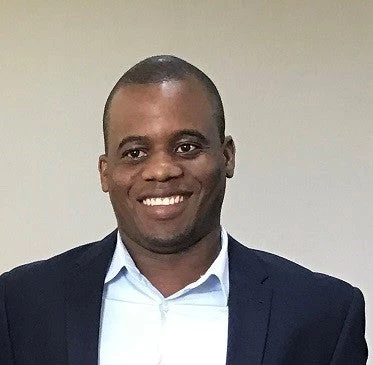 An inclusive response to COVID-19 for Africa’s informal workers.
An inclusive response to COVID-19 for Africa’s informal workers.
Across the world, lockdown measures have helped contain the spread of the coronavirus (COVID-19). Yet they have exacted a high economic cost, especially for the world’s poorest and most vulnerable. For many, staying indoors is a luxury they simply cannot afford. This is especially true in many African countries, where 80-90% of people work in the informal economy, often relying on the sale of simple goods and services, such as fruits, vegetables, and household supplies to make a living.
For the region, the pandemic threatens to reverse decades of economic progress and poverty alleviation. In fact, new estimates show that Sub-Saharan African countries could lose up to $79 billion in output in 2020.
The stress caused by the economic impact on people in Africa will exacerbate existing vulnerabilities, including poverty, fragility, and social exclusion. Many will lose jobs and income, which in turn will expose millions of people to extreme poverty and food insecurity. Most informal workers were barely making enough money to feed themselves and their families. In a recent protest in Malawi, informal vendors chanted, “we’d rather die of corona than hunger.”
In most African countries, people employed in the informal economy are already at risk of being excluded from basic services. Large segments of the populations here have limited access to water and sanitation, and high levels of food insecurity and malnutrition. Approximately 238 million people in Sub-Saharan Africa reside in crowded urban slums that risk being COVID-19 hotspots. Infection risks are compounded by the high incidence rates of HIV, AIDS, and tuberculosis (TB), especially in Southern Africa. And lockdowns further threaten to disrupt supply chains for HIV and TB medications.
The COVID-19 crisis in Africa also presents challenges for women, who constitute a significant part of the informal economy. In Sub-Saharan Africa alone, women make up 3 out of 4 workers in the informal economy, excluding agricultural jobs. If restrictions on movement or isolation measures are prolonged, instances of gender-based violence (GBV) against woman and girls will likely surge. According to the UN, many countries are already reporting a rise in cases of domestic and sexual violence, as well as violence against children. Special measures are needed to help protect these women and girls, and support for restoring their livelihoods will be critical to restoring the region’s economy.
At the World Bank Group, we are taking broad, fast action to help developing countries respond to the pandemic. We will provide up to $160 billion in financing over 15 months to address the health, economic and social shocks countries are facing. Of this amount, $55 billion will be for Africa, to help countries protect their poor and vulnerable, support businesses, and bolster economic recovery.
As part of this rapid response to the crisis, the World Bank’s social development programs are playing a critical role in supporting poorest and most vulnerable in multiple ways, including through the Environmental and Social Framework (ESF), community-driven development (CDD) programs, high frequency data collection, and new techniques for citizen engagement.
In a health, social, and economic crisis of this scale, no single intervention is enough, and African countries need a “whole of society” approach. CDD platforms, which put citizens at the center of designing their own solutions, are a critical part of the World Bank’s response, by tapping into productive partnerships between community groups, civil society, private sector and governments. These partnerships operate on the principles of subsidiarity, participation, accountability, and sustainability.
Where they are in place, CDD programs provide a rapid and flexible means of delivering cash and basic services to the poorest and most vulnerable. This is especially critical in Africa, where the majority of the population is not included in social registries or safety nets, and such systems take months if not years to put in place. CDD programs are also a valuable tool in areas where the community’s trust in government is low. As we saw during the recent Ebola crisis, trusted community leaders played a major role in mobilizing communities for behavior change and social assistance.
In many parts of Africa, CDD programs also stimulate local informal activities such as setting up handwashing facilities or producing masks during the pandemic. For example, in Guinea, the national CDD program and its agency (ANAFIC) worked with the central pharmacy to distribute essential medical kits across 152 health centers within a week after the country’s declaration of emergency. The agency’s network of facilitators across 337 local governments is being mobilized for communication campaigns on prevention and local monitoring of COVID-19 responses using mobile devices.
Our social development programs can also be tailored to mitigate the associated risks of violence against women and girls. Social assistance measures can be paired with community management approaches and embed awareness-raising messages on COVID-19 that integrate information on gender, violence against women and girls, and child exploitation and abuse. This will help mitigate some of the impacts on informal workers resulting from containment and mitigation measures for COVID-19. CDD programs also provide targeted support for the most marginalized groups, including women and unemployed youth.
To sustain measures that will alleviate the socioeconomic impacts of COVID-19 in Africa, we need a concerted push and substantial financial support from the international community. The choice and design of interventions need to be tailored to individual countries and situations. Most importantly, they need to respond to citizen’s needs, adapt to local dynamics, and protect the most vulnerable.



Join the Conversation